EUSAIR 10: Italy’s Leadership Marks a Decade of Regional Cooperation and EU Integration
Italy is our next focus while we look deeper into the 10th EUSAIR anniversary seen from the angle of member countries explaining achievements that are recognized by national implementers as important. As EU founding country and one of four EU member countries implementing the Strategy, Italy is third largest EU economy, third-largest country by population in the EU, giving 76 Members of the European Parliament and country which strongly supports EU enlargement, particularly in the Western Balkans.
Leadership provided by Italy during its EUSAIR Presidency 2017-2018 brought to Catania Declaration, a decisive milestone for the EUSAIR which set important strategic decisions which led to better ESIF and IPA planning processes. In this respect, Italy had a proactive role in embedding EUSAIR priorities into the 2021-2027 EU Cohesion Policy, but also in launching the Adriatic and Ionian Working Group to coordinate among European Territorial Cooperation (ETC) Programme Managing Authorities. This effort expanded with the constitution of EUSAIR Action Labs, in order to support the embedding process by promoting shared methodologies, identifying synergies, and preparing joint actions.
With regard to one of the main goals of EUSAIR Pillar 2: Connecting the Region and in order to boost Adriatic-Ionian transport and energy connectivity, Marche Region, as the Italian Facility Point 2014-2020, provided the technical assistance which allowed the development of two key long-term shared vision documents, specifically the EUSAIR Master Plan of Transport targeting sustainable and multimodal transport, the EUSAIR Master Plan on Energy aligning with European Green Deal goals.
These tools foster long-term cooperation and investments between EU and Western Balkan Countries and converge all the 10 EUSAIR nations around a shared vision for transport and energy integration through 2050.
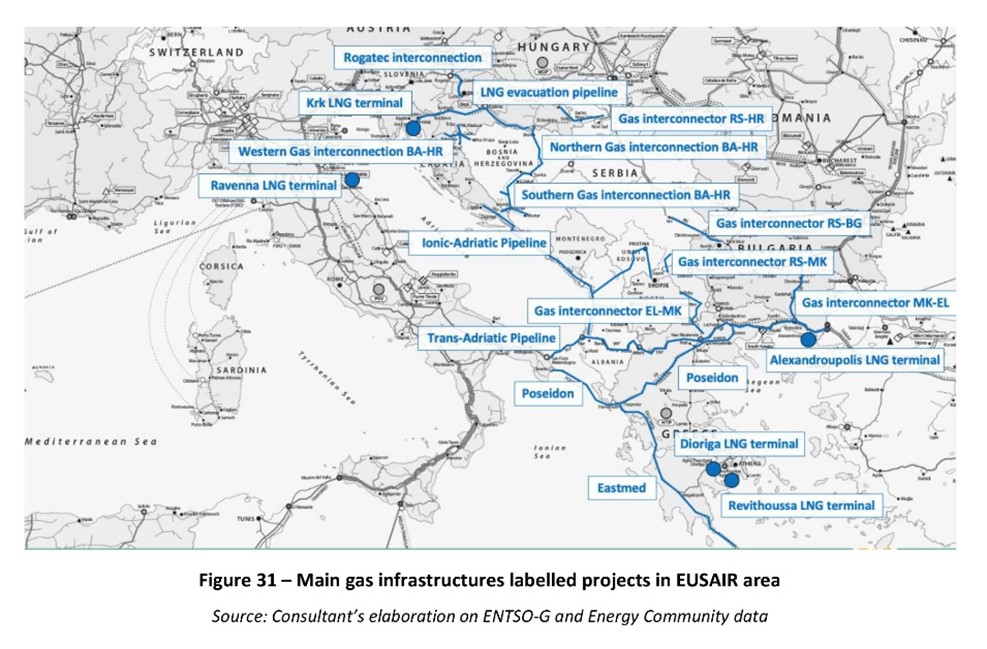
Photo: 2) Main gas infrastructures labelled projects in EUSAIR area
Catania Declaration sparks embedding process for EUSAIR in 2021-2027 EU programming
Adopted in May 2018 during the 3rd EUSAIR Annual Forum in Catania under Italy’s EUSAIR Presidency, the Catania Declaration set a decisive political milestone for EUSAIR as represents the launch of the “embedding process”. The Catania Declaration laid the groundwork for integrating the strategy’s priorities into the EU’s 2021-2027 programming cycle.

Photo: 3) Catania Declaration (1)
A key message was a drive for early and coordinated action. National and regional authorities managing EU Structural and Investment Funds ESIF and Instrument for Pre-Accession Assistance IPA were urged to align their strategic planning from the outset. The aim was to ensure that macroregional priorities were embedded in core documents, such as ESIF Partnership Agreements and IPA Strategy Papers.
The Catania Declaration also emphasized the need for joint identification of Flagship macroregional priorities, requiring harmonized funding strategies across participating Countries. This harmonization would ensure greater impact and visibility of EUSAIR actions. In this context, a close cooperation with civil society, regional organizations and intergovernmental initiatives has been activated. EUSAIR’s inception stems from the EU focus on critical macroregional Countries as well as from the establishment of the Adriatic-Ionian Initiative (AII), a political platform aimed at developing regional cooperation and integration frameworks in the Adriatic-Ionian Region.
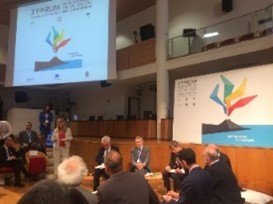
Photo: 4) Catania Declaration 1
“The Italian Presidency, working closely with the European Commission and the Adriatic-Ionian Initiative, provided a fundamental political momentum. Two years later, in 2020, EUSAIR’s four thematic Pillars proposed Flagship projects, later endorsed by the EUSAIR Governing Board marking a major step towards strategic and operational maturity which is confirmed by successful project implementation. The Catania Declaration was a step forward which brought to the goal – the European Commission integrated EUSAIR priorities into broader EU policies and funding schemes”, said Nicola Favia, Coordinator at Presidency of the Council of Ministers – Department for Cohesion Policy and the South.
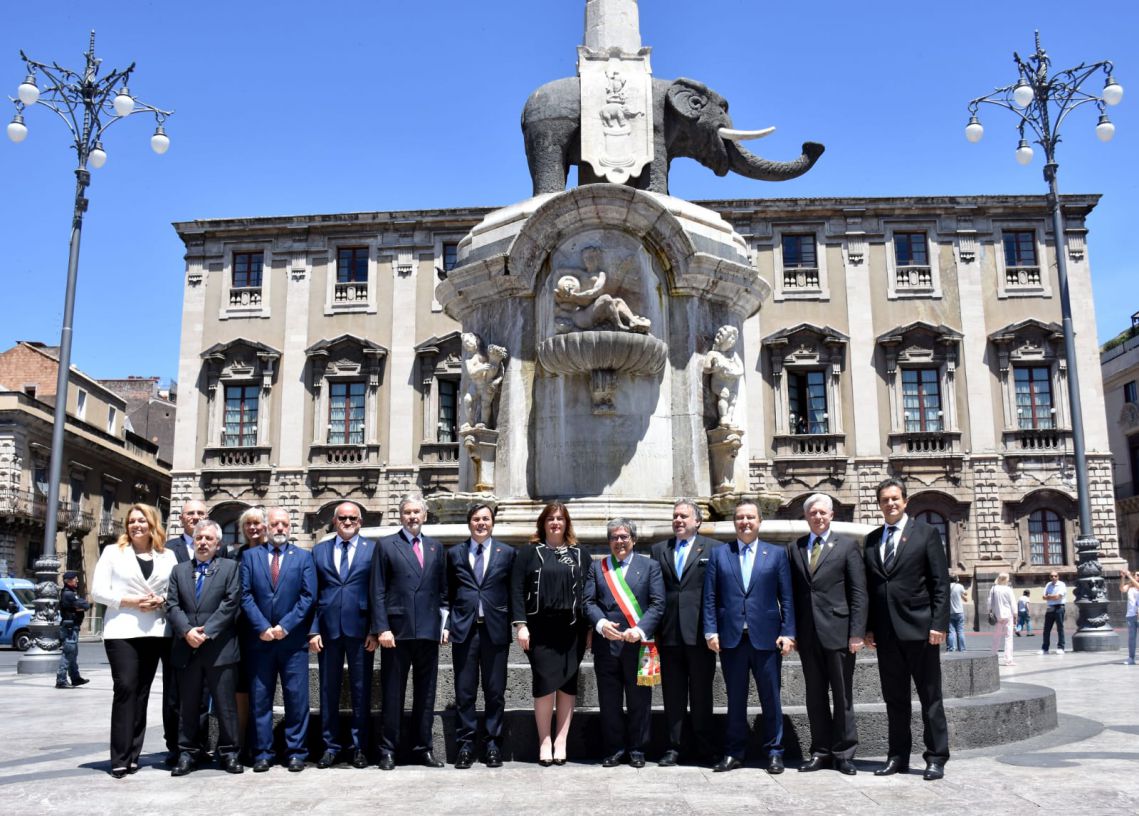
Photo: 5) Signing of the Catania Declaration
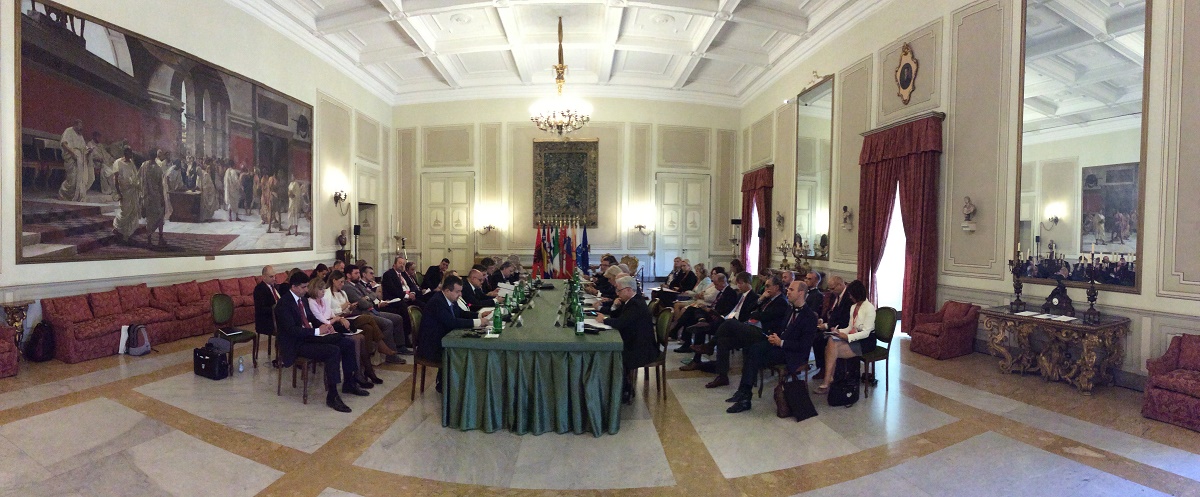
Photo: 6) Catania Declaration (3)
How Italy led forward regional integration with bold push to embed EUSAIR into the EU Funding
With determination and strategic vision, Italy has mobilised institutions, launched networks and created an EUSAIR Stakeholder Platform (ESP), conceived as a main tool of the EU Strategy for the Adriatic-Ionian Region (EUSAIR) to increase stakeholder engagement, coordination and implementation process.
The ESP has been useful to ensure that macroregional priorities translate into concrete funding and action. The whole process has been supported by Marche Region as Italian Project Partner of the Strategic Project “Supporting the Governance of the EUSAIR: Facility Point” (Programming Period 2014-2020).
The journey began in 2019 with the launch of the Adriatic and Ionian Working Group, a first-of-its-kind network of Managing Authorities (MAs) from ETC programmes such as ADRION, Italy-Slovenia, Italy-Croatia and Italy-Albania-Montenegro. Italy’s aim was to align programming across borders and ensure that EUSAIR priorities are fully embedded in operational funding plans.
Momentum grew in 2021 with the launch of the EUSAIR Action Labs, hands-on workshops that brought national and regional MAs together to harmonise understanding, map opportunities and lay the groundwork for joint initiatives. With the goal of concretely supporting cohesion programme in embedding EUSAIR priorities, this initiative, led by the Department for Cohesion Policies and the South (DPCoeS) as EUSAIR Italian National Coordinator responsible for EU funds, with the support of the Italian Facility Point and Interact, provides a methodological and operational support to create a space for practical dialogue on Flagship projects and funding alignment.
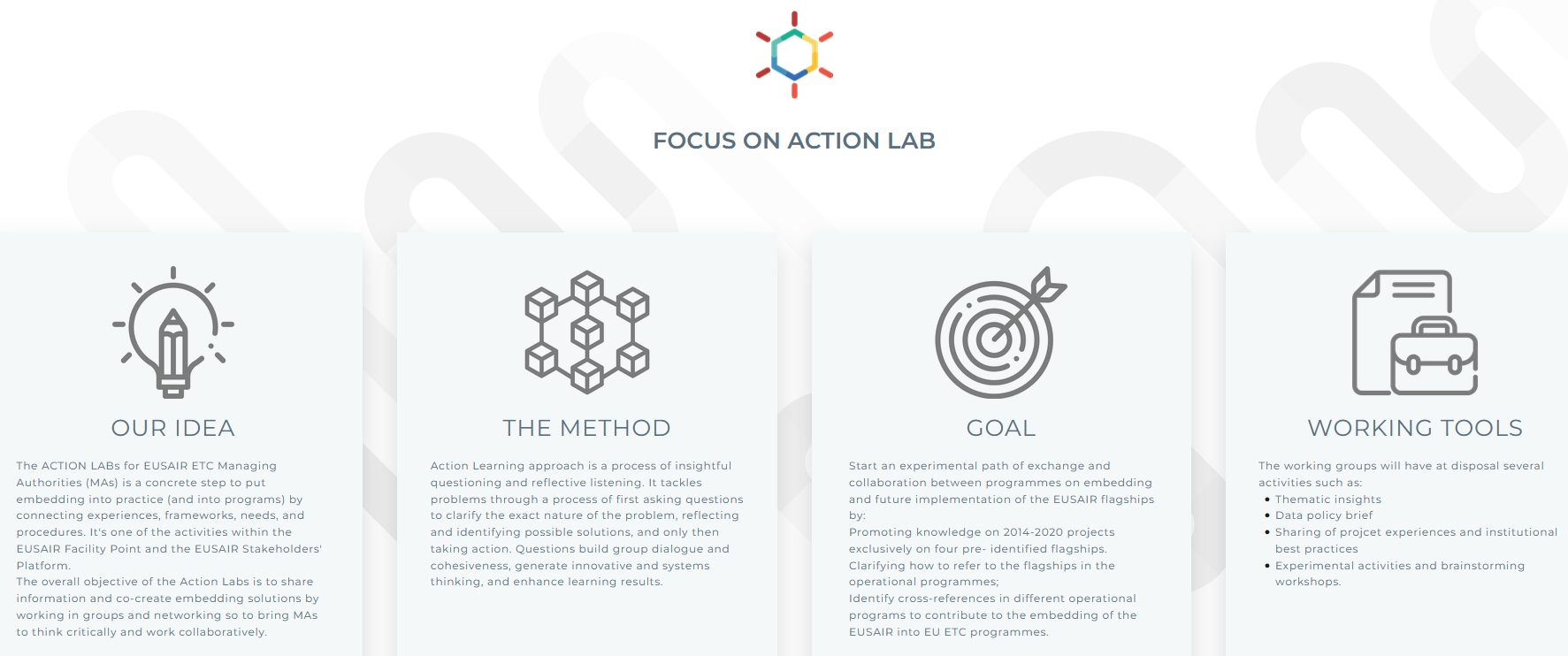
Photo: 7) EUSAIR Action Labs
The EUSAIR Action Labs aimed to enhance coordination among MAs involved in Adriatic-Ionian cooperation. With the technical support of the Thematic Steering Groups (TSGs) experts and Pillar Coordinators, the first lab promoted a harmonized understanding among programmes and the identified EUSAIR Flagships, through the exchange of practices and the capitalization activity. The second lab focused on mapping Flagship-related actions within draft ETC programmes and identifying the related complementarities. The third lab defined synergies among programmes and created a roadmap to trace the path of cooperation, starting from the programming period, towards a long-term implementation perspective. On 7 April 2022 during the fourth Action Lab, organized in Ancona, the outcomes of the previous Action Labs were presented and a formal network of MAs from the Adriatic-Ionian Region and technical groups were launched to support Flagship-coordinated calls for project proposals. The event was the first to be held in person since the pandemic and, with the organizational support of the Italian Project Partner of Facility Point (Marche Region), responsible for stakeholder engagement, it represented a pivotal step towards stimulating and boosting strategic collaboration and dialogue with the MAs of the programmes with the aim of implementing shared priority actions.
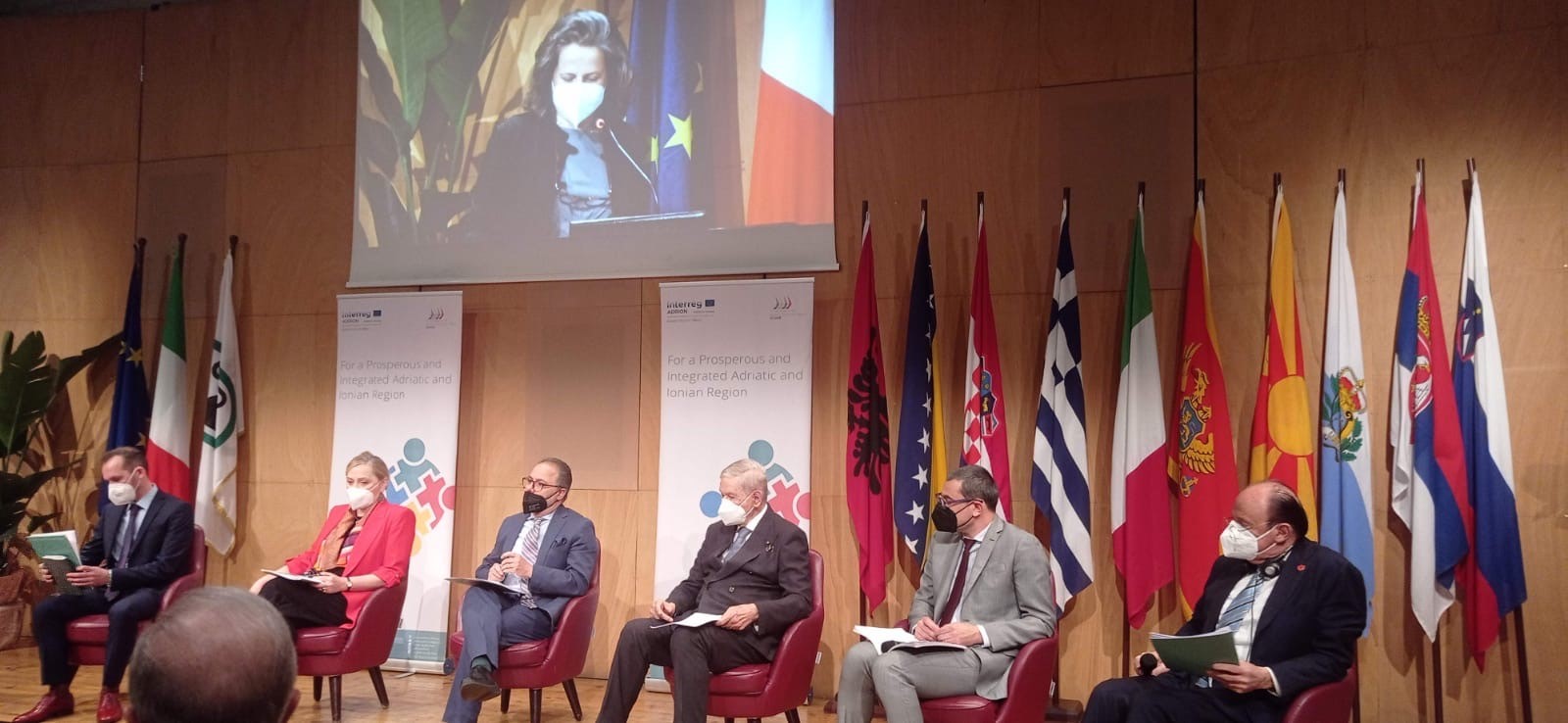
Photo: 8) 4th EUSAIR Action Lab (Ancona, 7 April 2022)
With regard to the dissemination activity of Pillar 2 on Transport and Energy, a series of technical workshops and conferences were promoted in the period 2021-2022 on the initiative of the Italian regional representative of Pillar 2 (Autonomous Region of Friuli Venezia Giulia). One, in the framework of Flagship “Adriatic-Ionian Green/Smart Port Hubs Concept”, examined the best solutions using the ICT to overcome bottlenecks, with a view to developing intermodal infrastructure systems in the AI area. The second, a series of workshops involving also MAs, dealt with the theme of embedding of the Flagship Transport initiative “Adriatic-Ionian Cycle Route” in the EU programming period 2021-2027. The action consists of a cycle route running along the entire Adriatic-Ionian coastline from Italy (all Italian Regions involved in EUSAIR) to Greece.
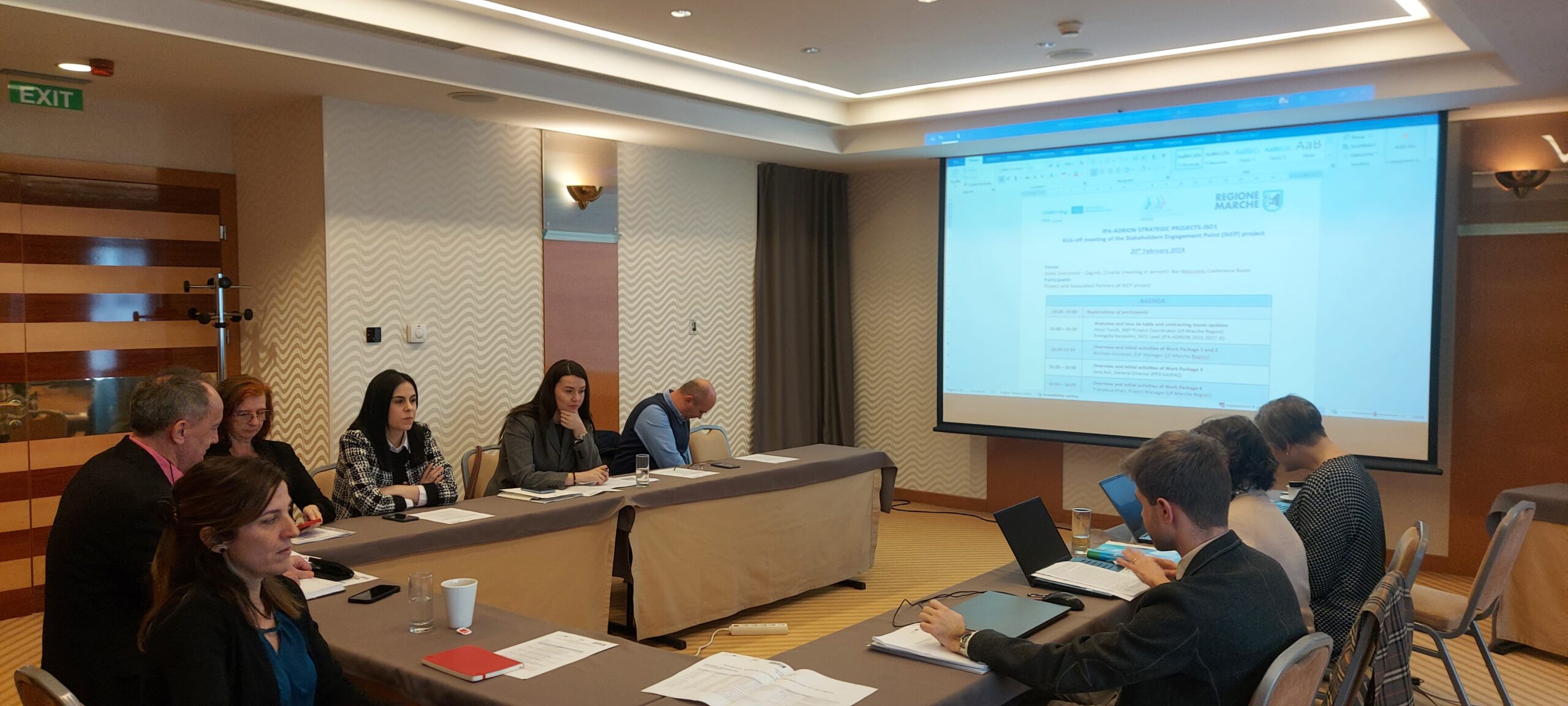
Photo: 9) SteP meeting – kick-off
Regarding the enhancement of the stakeholder engagement, in the current EU Programming period (2021-2027) the EUSAIR Strategic Project “Stakeholders Engagement Point – StEP”, whose Lead Partner is Marche Region, is continuing the work by engaging the mainstream ERDF MAs and strengthening the presence of the Strategy across both ERDF and IPA III frameworks.
Italy’s leadership demonstrates how embedding is not just a bureaucratic exercise, but a strategic tool for leveraging ERDF and IPA funds to turn macroregional goals into tangible results for citizens and territories.
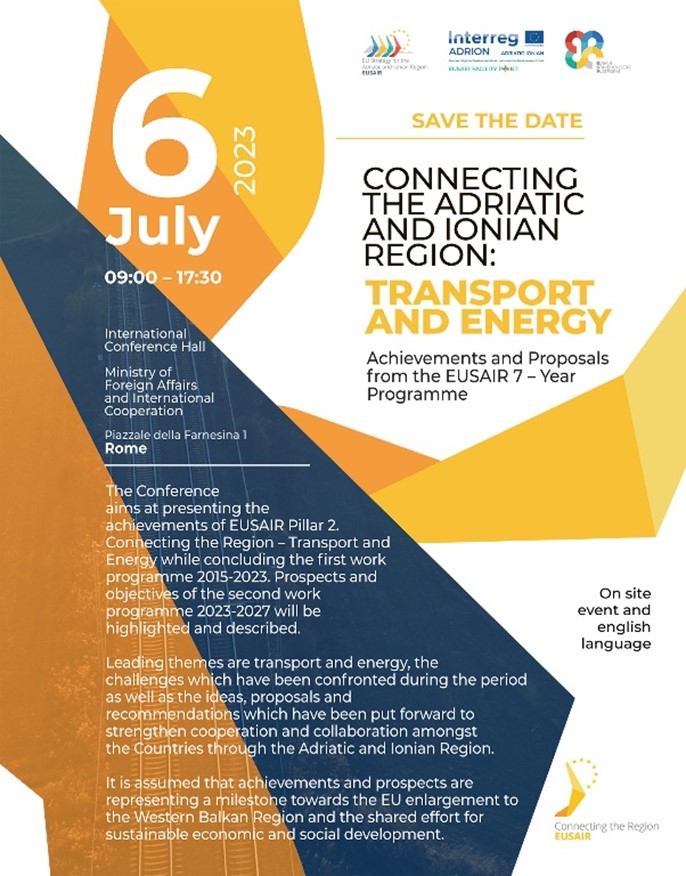 Developing a macroregional sustainable connectivity system: Italy supports long-term vision for transport and energy in the Adriatic-Ionian Region
Developing a macroregional sustainable connectivity system: Italy supports long-term vision for transport and energy in the Adriatic-Ionian Region
Taking into account that a more connected infrastructure system across the Adriatic-Ionian Region is strategic to promote economic and sustainable development and regional cohesion, in the framework of the activity of the EUSAIR Pillar 2 – Connecting the Region, Italy, through the Italian Project Partner of Facility point Marche Region, provided crucial technical assistance to deliver specific planning tools for shaping the future of transport and energy in the area. The results was a suite of strategic actions that set the stage for long-term infrastructural scenarios in the context of EU investments framework.
Photo: 10) Poster EUSAIR Open Conference (Transport and Energy) – Rome, 6 July 2023
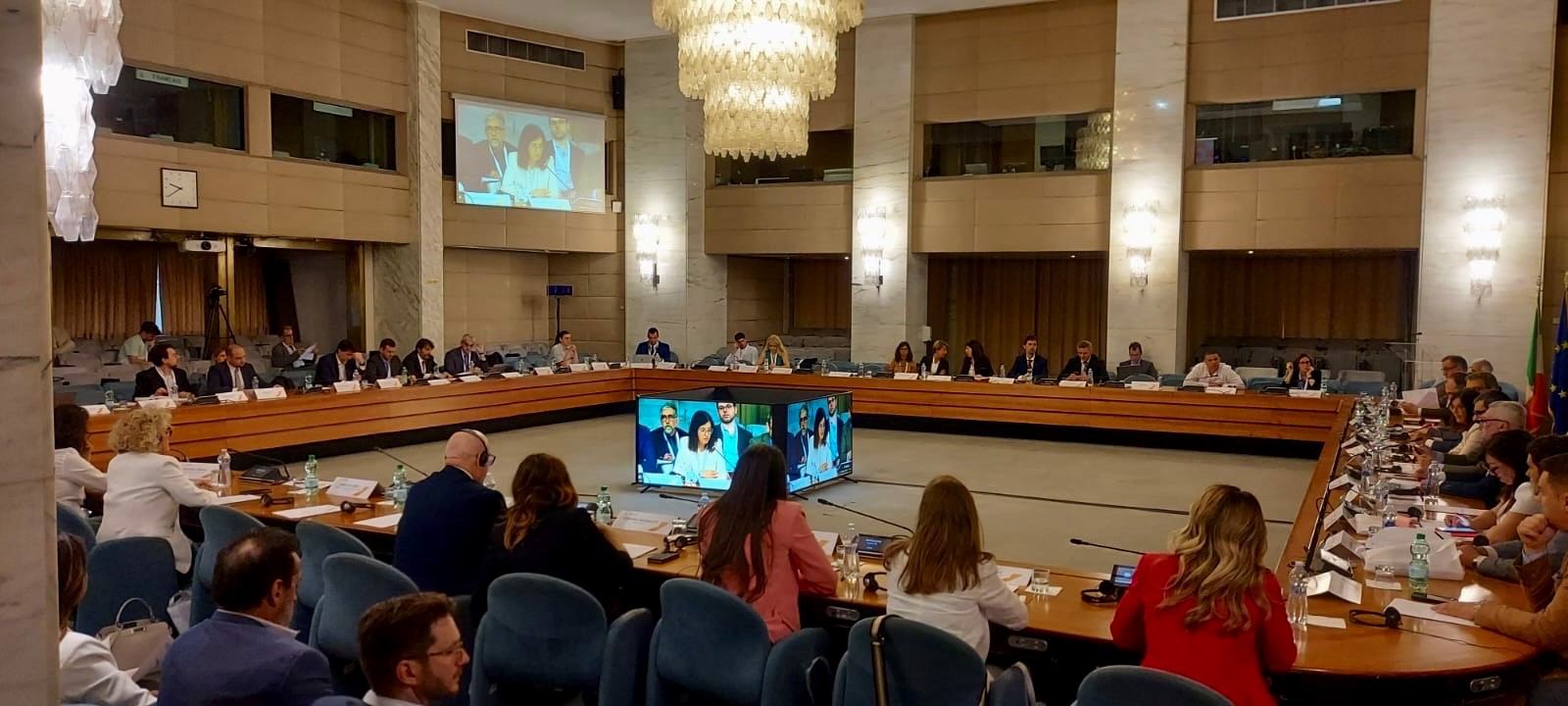
Photo: 11) EUSAIR Open Conference (Transport and Energy) – Rome, 6 July 2023
At the heart of this effort lies the EUSAIR Master Plan of Trasport, considered a strategic tool by Italy in its role of Coordinator of Pillar 2 on Transport and Energy. The Master Plan is a key document which defines a shared long-term vision, with a time horizon to 2030 and 2050, and lays the foundation for a common understanding of transport policy in the Adriatic-Ionian Region, analysing opportunities, challenges and ongoing projects, while proposing a shared vision on a multimodal, integrated, greener and more effective regional transport system. Composed of seven key sectors, including maritime, rail, air, and road, it analyses the current and foreseen infrastructure situation, in order to identify priority projects that close accessibility gaps, cut emissions, and improve the mobility of people and freight across the region.
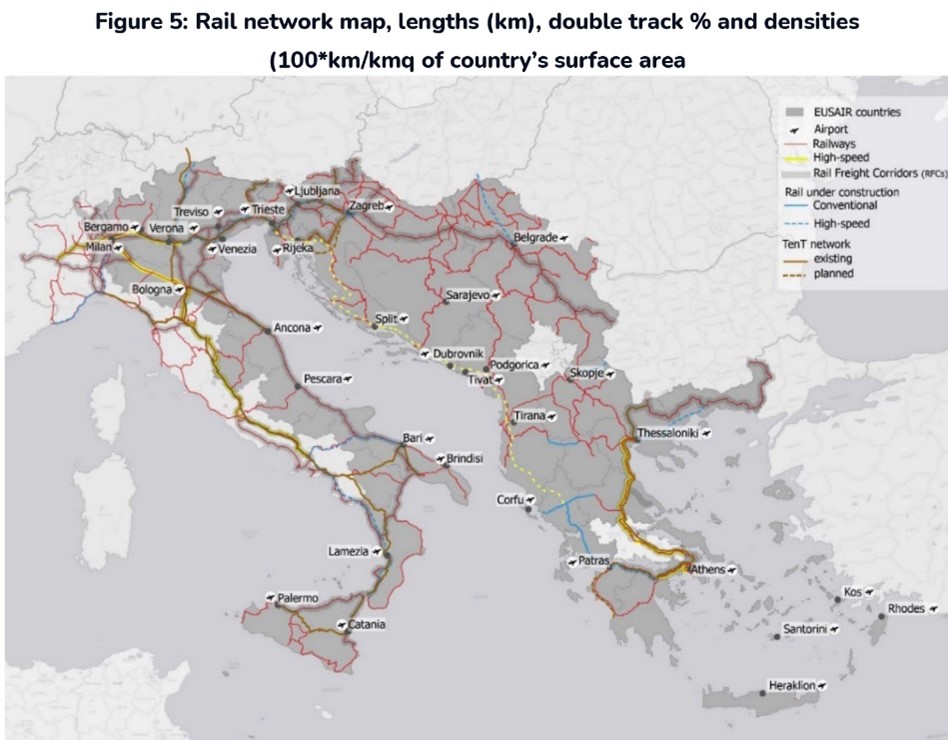
Photo: 12) MasterplanEUSAIR_Volume1_ExecutiveSummary-14
Parallel efforts focused on energy have led to the elaboration of the Master Plan of Energy, which represents a tool for identifying scenarios in the time horizon 2030-2050. The document, taking into account the different starting points and structural specificities of the EUSAIR participating Countries, supports the promotion of energy policy objectives of competitiveness, energy security and sustainability, along a path leading to the decarbonisation of energy systems, fostering a sustainable green and digital transition in the area.
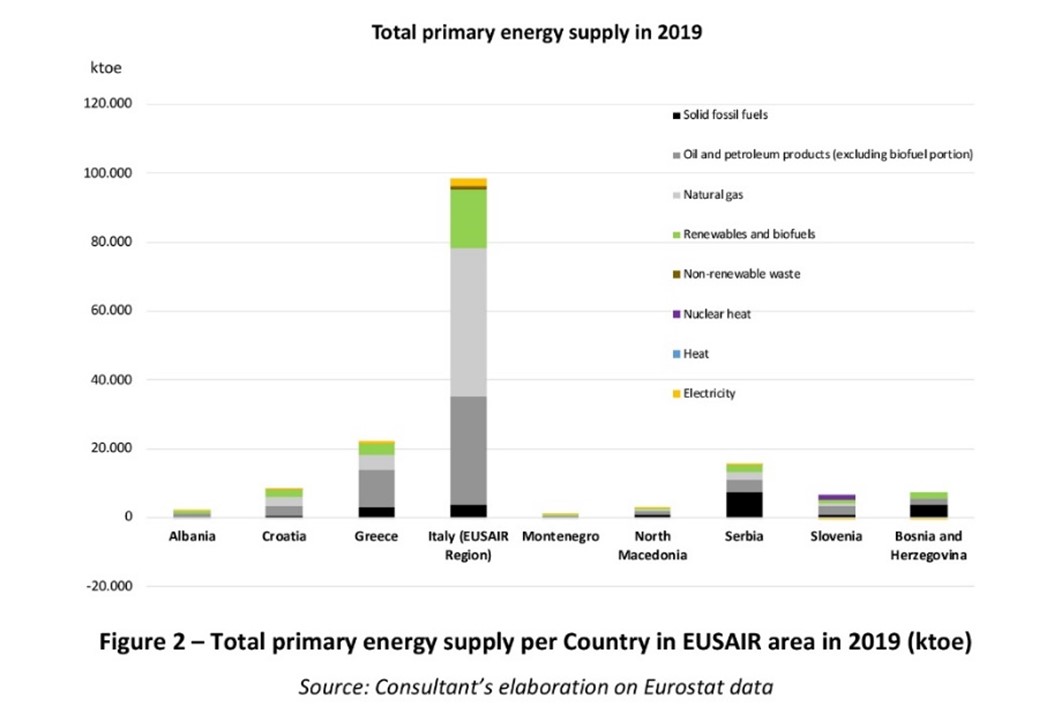
Photo: 13) Energy Master-Plan_Executive-summary-16
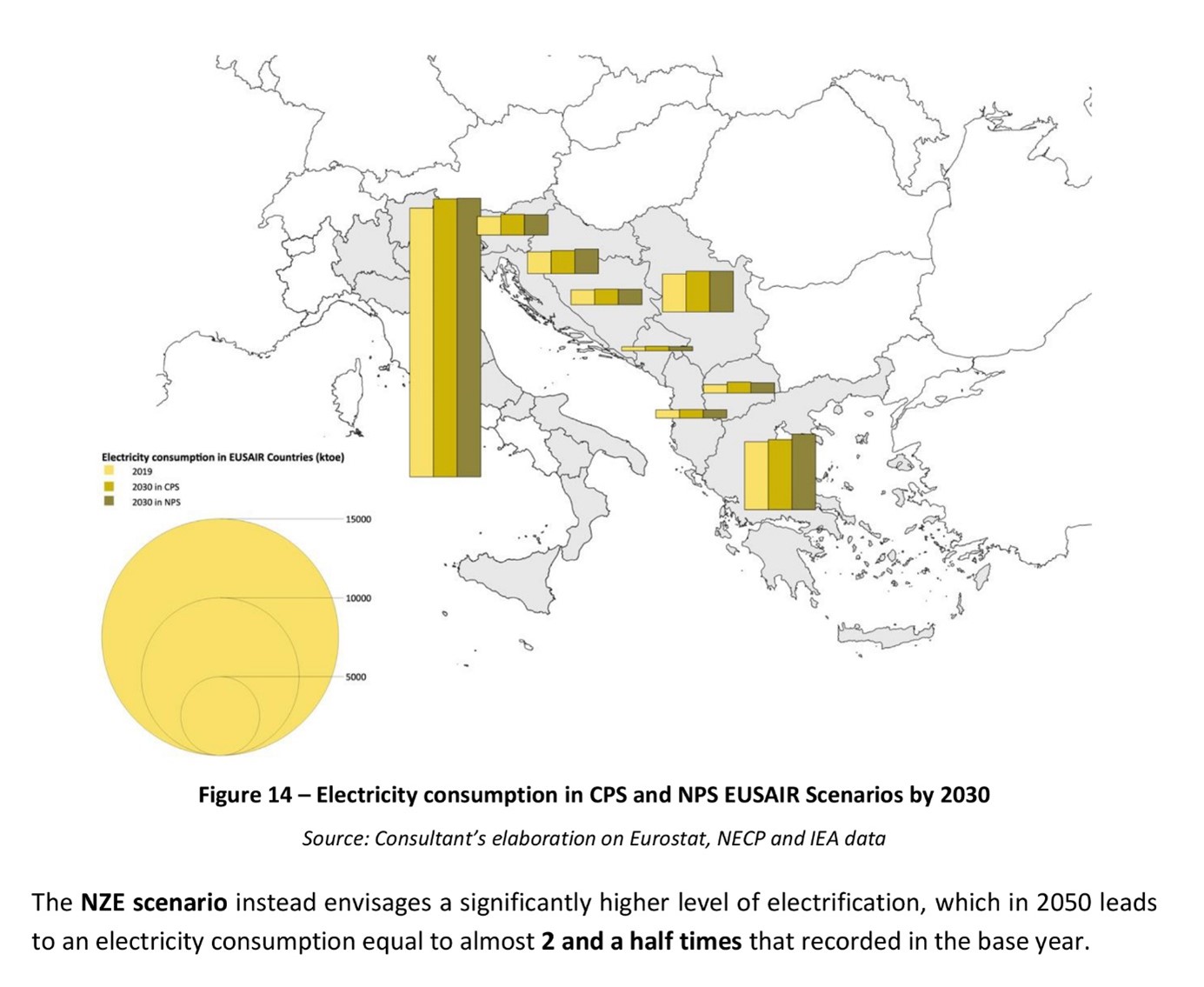
Photo: 14) Energy Master-Plan_Executive-summary-30
A further tool for the energy sector is represented by the Road Map for an Integrated Electricity Market and Gas Hub of the Adriatic and Ionian Region, for the promotion of economic integration of the Adriatic-Ionian Region and of convergence and integration of electricity and natural gas market of all participating Countries, with the aim of aligning all national energy strategies with macroregional goals and the European Green Deal.
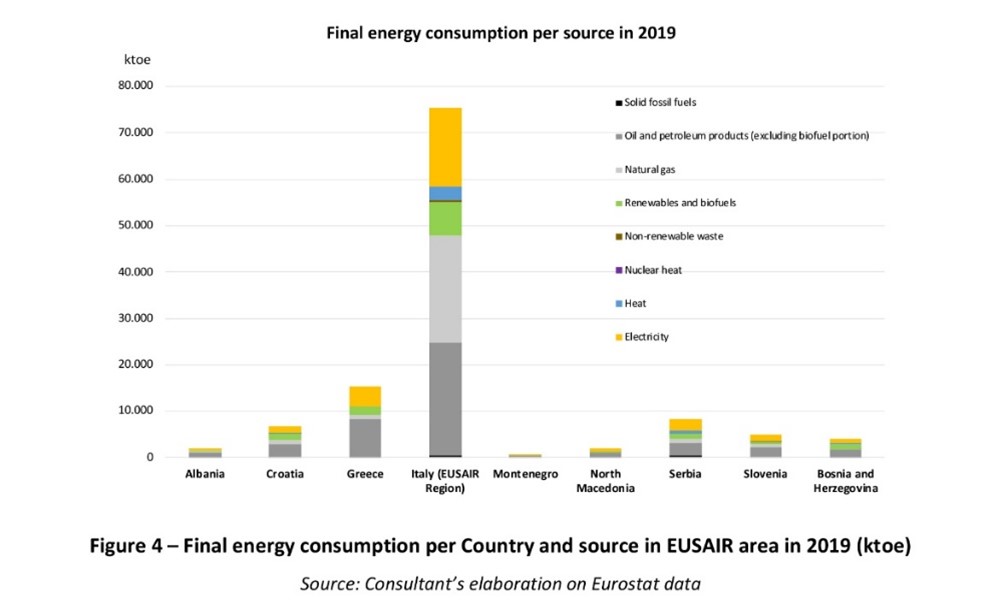
Photo: 15) Energy Master-Plan_Executive-summary-17
These initiatives, supported by the Facility Point strategic project (Marche Region as Italian Project Partner) and involving all 10 EUSAIR Countries, mark a turning point. Where past rivalries once stalled progress, Countries now share a common future vision for a more integrated economic and sustainable development of the area.
In the perspective of the prosecution of EU Enlargement Process to the Western Balkans, the two EUSAIR Master Plans are strategic and technical starting point for the interaction and better connection between the EU and its Member States with the Western Balkan area, for a connected and resilient Europe.
EUSAIR Stakeholders platform becomes digital engine of regional cooperation
During the Programming Period 2014-2020, the EUSAIR Stakeholders Platform (ESP), led by Italy and coordinated by Facility Point Marche Region, has emerged as a vital engine for cross-border cooperation in the Adriatic-Ionian Region, particularly during the COVID-19 pandemic. Originally designed to enhance stakeholder engagement and coordination, the Platform became the primary tool for ensuring the functioning of the EUSAIR Strategy in challenging times.
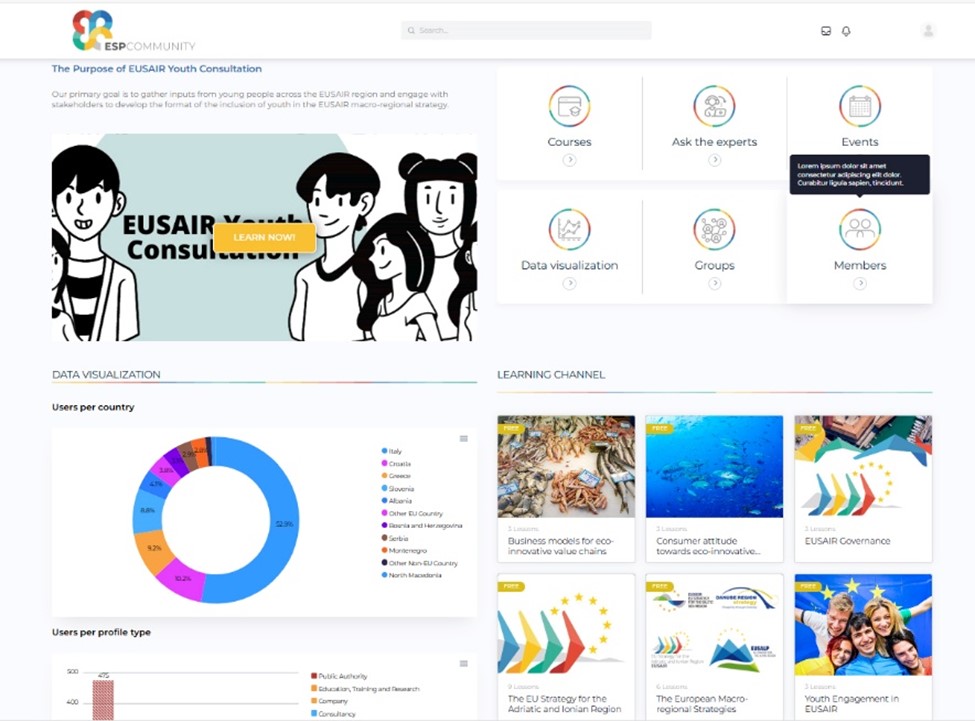
Photo: 16) ESP Dashboard
Between 2020 and 2023, the Platform enabled the organization of over 400 virtual meetings, supporting not just EUSAIR governance structures, but also project partners, civil society, national and regional stakeholders. A total of 88 working groups were established—covering all four EUSAIR Pillars and key actors such as universities, chambers of commerce, and NGOs.
The ESP also became a hub for knowledge-sharing and capacity-building. It produced 8 e-learning courses and 9 thematic newsletters, along with infographics and video content promoting macroregional goals like sustainable tourism, green infrastructure, and youth engagement.
In the framework of the new organization of the strategic projects to support the implementation of EUSAIR in the Programming Period 2021-2027, the ESP has foreseen a more efficient use of digital technology with the aim of becoming a model of digital innovation capable of driving territorial cohesion and strategic cooperation in Europe: “We are very pleased that under the StEP project, the Platform is evolving into a true digital knowledge centre. Planned upgrades include advanced stakeholder mapping, data analytics, an Adriatic-Ionian geoportal, and improved digital tools for events and policy monitoring”, announces Ms. Donatella Romozzi from Marche Region, already Facility Point 2014-2020 and EUSAIR StEP project coordinator.
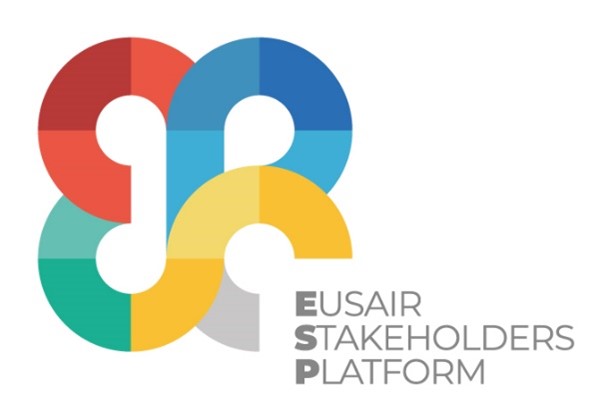
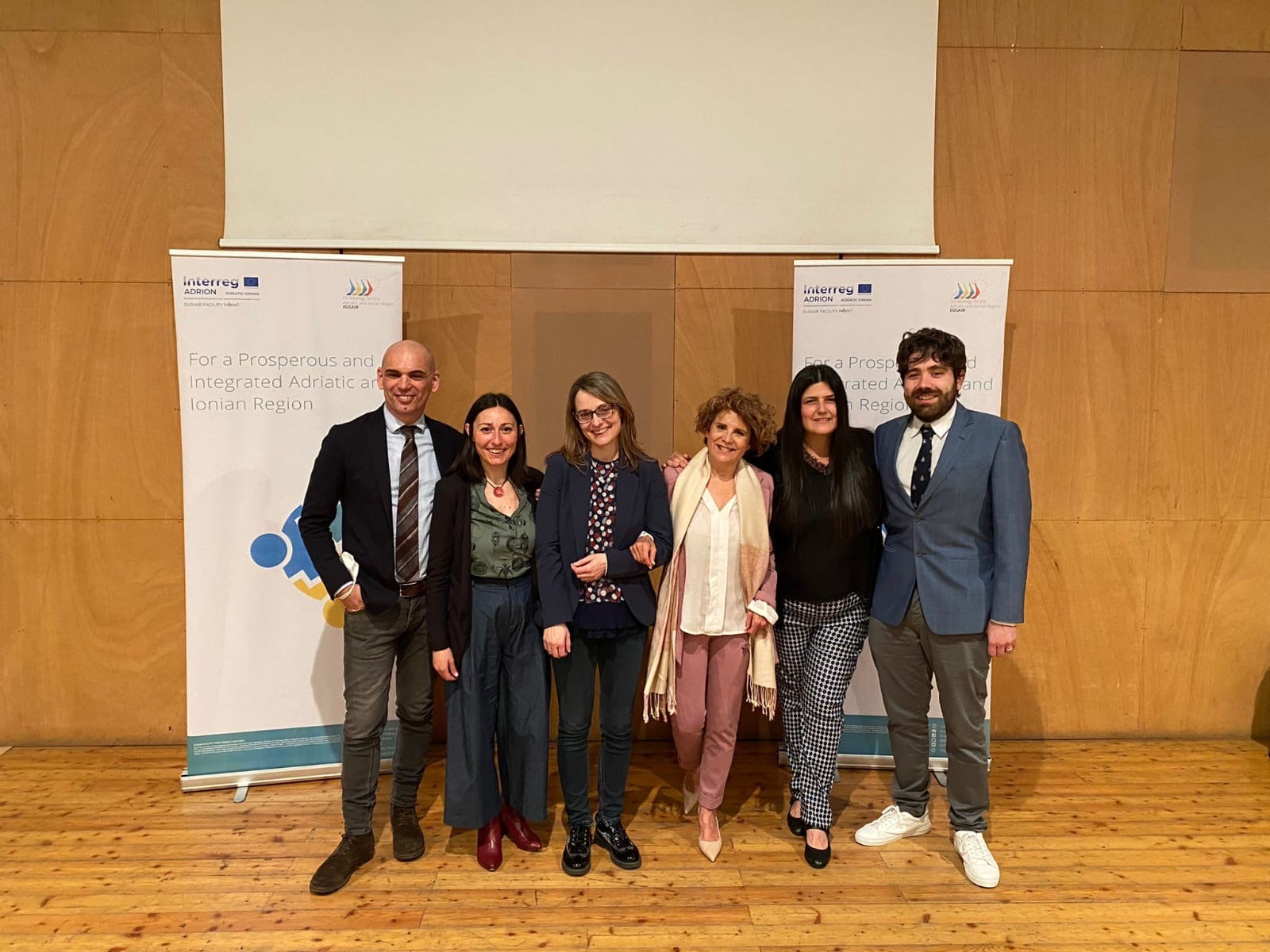
Photo: 17) ESP team – Facility Point 2014-2020
Photo: 18) Logo ESP
Italy champions EU Enlargement to Western Balkans through EUSAIR and the Adriatic-Ionian Initiative
Since the beginning, Italy has played a leading role in fostering regional cooperation through its strong support for the Adriatic-Ionian Initiative (AII), the political foundation upon which the EU Strategy for the Adriatic and Ionian Region EUSAIR was built. AII became a platform which promotes stability and dialogue in the Region and a key driver of EU integration, particularly for the Western Balkans.
Indeed, Italy hosted the pivotal Ancona Summit in 2000, where the Ancona Declaration laid out the European future of the Adriatic-Ionian Region. Since 2008, Italy has hosted AII’s Permanent Secretariat in Ancona, ensuring coordination across Countries and continuous project development. Italy remains AII’s main financial supporter via the Ministry of Foreign Affairs and International Cooperation (MAECI).
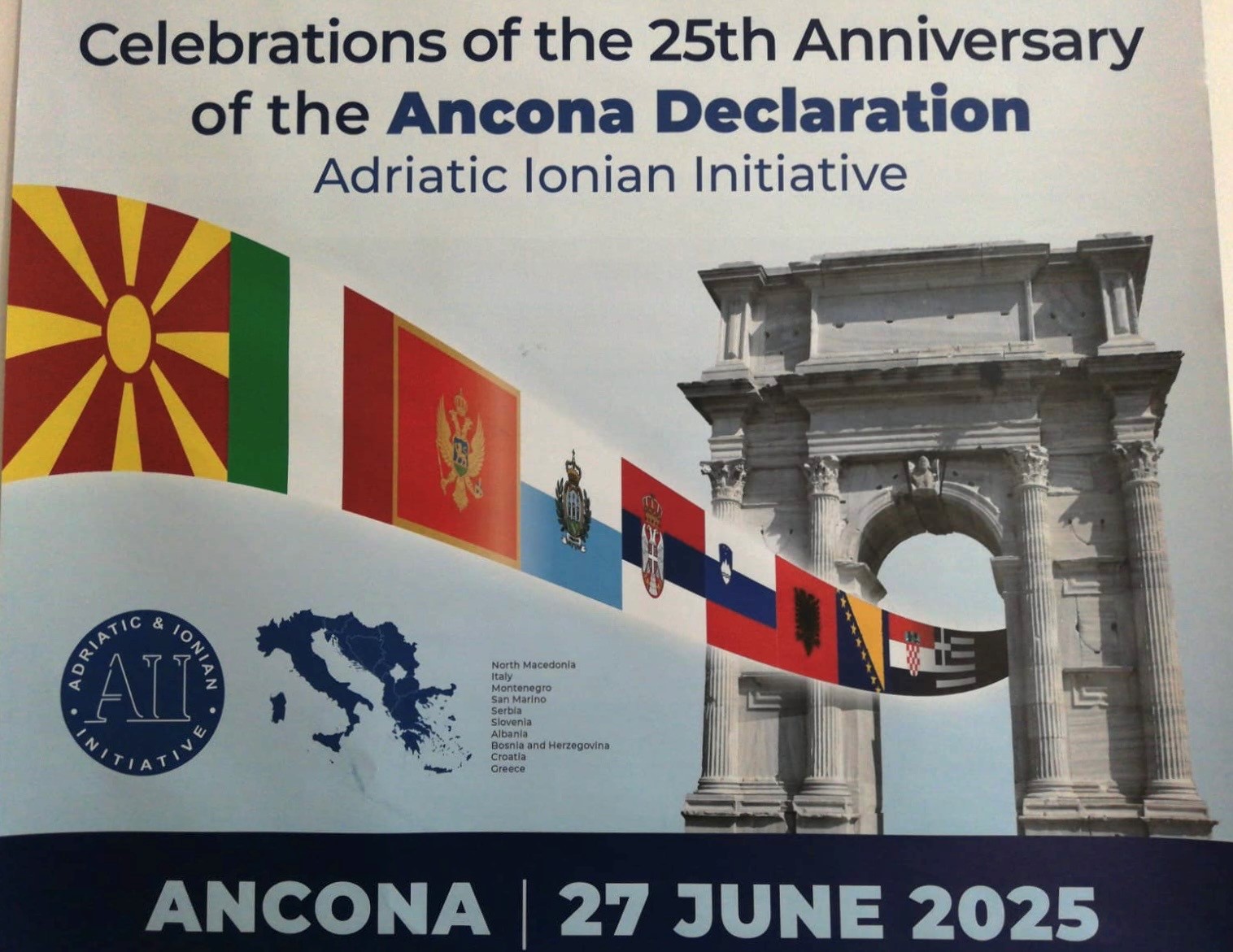
Photo: 19) 25th Anniversary of the Ancona Declaration (Ancona, 27 June 2025)
Key initiatives include scholarships for regional students and the “Western Balkanship”, launched in 2023 with UniAdrion and Forum of the Adriatic and Ionian Chambers of Commerce, enabling cross-border student placements in regional companies. These efforts boost youth engagement, academic-business links, and long-term integration
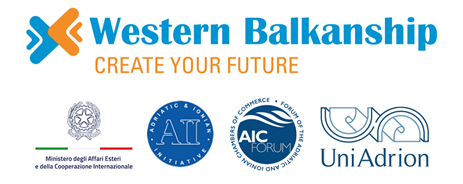
Photo: 20) IU-ni-28693-25203
EUSAIR is a vital platform for advancing EU enlargement, especially in a macroregion where candidate countries outnumber EU Member States. The Strategy fosters alignment with EU standards by promoting reforms, strengthening governance, and enhancing stakeholder participation across all its Pillars. Italy, as a founding member of the EU, AII and EUSAIR, is an active advocate for the accession of Western Balkans. Its support encompasses full political commitment to support Western Balkans Countries willing to work on reforms, technical assistance to candidate Countries and fully-fledged support to EUSAIR Flagships and ADRION-financed projects, all aimed at accelerating negotiations, improving institutional capacity, mobilizing funds and orienting projects in order to drive and improve a smoother and faster regional integration towards EU membership.
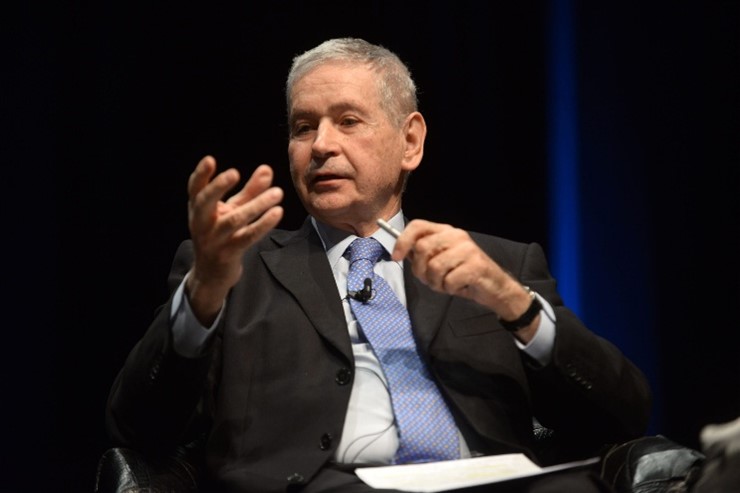
Photo: 21) Ambassador Giovanni Castellaneta



 “Italy fully supports the enlargement with the strong belief that this is a necessary step toward prosperity, development, peace, security and opportunities for citizens of the macroregion, as well as for the whole EU. Our contribution to this paramount objective is multilayered. It encompasses full political commitment to support countries willing to work on reforms and technical assistance to candidates”, says Luigi Paoli Puccetti, diplomat at the Italian Ministry of Foreign Affairs and International Cooperation working for the Unit for the Western Balkans and the Adriatic Region.
“Italy fully supports the enlargement with the strong belief that this is a necessary step toward prosperity, development, peace, security and opportunities for citizens of the macroregion, as well as for the whole EU. Our contribution to this paramount objective is multilayered. It encompasses full political commitment to support countries willing to work on reforms and technical assistance to candidates”, says Luigi Paoli Puccetti, diplomat at the Italian Ministry of Foreign Affairs and International Cooperation working for the Unit for the Western Balkans and the Adriatic Region.


